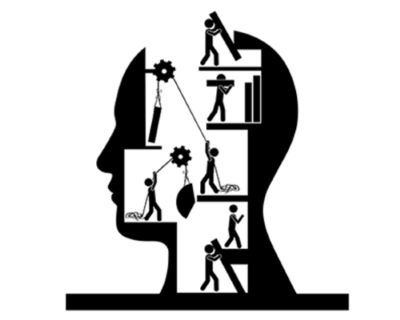Date : 03/01/2024
Relevance: GS Paper 3- Science & Technology- Awareness in various fields of S & T
Keywords: Psychoanalysis, Sigmund Freud, neurology, Unconscious Mind, Freud's "The Interpretation of Dreams"
Context-
Recently, the Psychoanalysis application in assessing the motives behind the Parliament security breach in Delhi has brought it back into the spotlight. In this comprehensive exploration, we look into the origins of psychoanalysis, its fundamental principles, and its relevance in contemporary mental health practices.
The Origins of Psychoanalysis
Psychoanalysis, a term coined by the renowned Viennese psychiatrist Sigmund Freud, has long been a subject of intrigue and misconception. Originating as the first modern Western system of psychotherapy, psychoanalysis has evolved, influenced by advancements in neurology, psychiatry, psychology, philosophy, and natural and social science Psychoanalysis emerged in 1886 when Freud collaborated with physician Josef Breuer, focusing on treating clients with "hysteria." This early approach, known as "the talking cure," encouraged individuals to discuss themselves, ultimately leading to the recall of buried traumatic experiences and a subsequent reduction in symptoms. Freud's groundbreaking work laid the foundation for a psychological worldview that sought to address symptoms that other medical practitioners found challenging.
Psychoanalytic Theories Overview
- Freud's Free Association Technique:
Overview: Foundational technique for accessing the unconscious. Procedure: Patients express uncensored thoughts and emotions, promoting openness. Limitations: Subjective interpretation, time-consuming, yet valuable. - The Oedipal Complex:
Definition: Unconscious desires for same-sex parents, hostility toward opposite-sex parents. Controversies: Cultural specificity and gender stereotype reinforcement. Impact: Central in psychoanalytic theory, shaping understanding of human development. - Freud's Tripartite Theory of the Psyche:
Components: Id, ego, and superego – representing impulses, rationality, and societal norms. Critiques: Oversimplification, lack of room for change, highlights dynamic interplay. - Dream Interpretation - Freud's "The Interpretation of Dreams":
Key Concepts: Dreams as therapeutic for addressing unconscious wishes and repressed emotions. Controversies: Criticized for sexual emphasis and subjective interpretation. Significance: Provides insights into the unconscious mind, and aids in treating disorders. - Evolution of Psychoanalytic Thought:
Mavericks: 1950s expansion with figures like Jung, Adler, Erikson, and Horney. Emphasis: Shift towards therapy and holistic healing approaches
The Unconscious Mind
Central to psychoanalytic theory is the concept of the unconscious mind, where memories, affects, and instincts are kept hidden due to their threatening nature. Freud's model further delineated the id, ego, and superego, representing instinctual drives, rationality, and internalized societal norms, respectively. While some contemporary psychoanalysts challenge this model, viewing the mind as composed of multiple self-states, the notion of the unconscious remains crucial in psychoanalysis.
Fantasies, Defenses, and Resistance
Freud posited that fantasies serve various psychic functions, from ensuring safety to regulating self-esteem and overcoming traumatic experiences. Examining and interpreting these fantasies becomes essential in psychoanalysis, as they are believed to motivate behavior. Defense mechanisms, such as projection, reaction formation, and rationalization, are intrapsychic processes that help individuals avoid emotional pain by pushing thoughts and feelings out of conscious awareness. The concept of resistance, identified by Freud when clients were reluctant to engage in therapy, led to the technique of free association, allowing clients to express their thoughts without self-censorship.
Transference and Countertransference
Freud introduced the concept of transference, wherein clients project past templates onto the therapist. This phenomenon provides an opportunity for individuals to gain insights into the effects of adverse past experiences on current behavior. Freud emphasized the importance of therapist anonymity to minimize transference. Additionally, he acknowledged countertransference, suggesting that therapists might have their unconscious conflicts, necessitating personal supervision or self-analysis.
Psychoanalysis as a Therapeutic Tool
Freud's practice often involved interpreting dreams, considering them forms of wish fulfillment. While contemporary psychiatrists may disagree on the centrality of dream interpretation, the overarching goal of psychoanalysis remains to make the unconscious conscious. Freud believed that individuals deluded themselves about the reasons for their behavior, limiting their choices. Psychoanalysis posits that the therapeutic relationship itself serves as a mechanism for change. By presenting a new relational experience, therapists challenge maladaptive models shaped by past relationships.
Traditional vs. Contemporary Psychoanalysis
Traditional psychoanalysis typically involved four to six sessions per week, lasting for years. This intensive approach aimed at fostering fundamental changes in personality functioning. However, contemporary psychoanalysts recognize the challenges of long-term intensive treatment and advocate for shorter-term consultations, occurring once or twice a week. While circumscribed symptoms may change in the short term, deeper personality changes require extended exploration.
Application of Psychoanalysis in the Parliament Security Breach Case
Returning to the recent application of psychoanalysis in the Parliament security breach incident, the Delhi Police revealed that the accused individuals underwent psychoanalysis at a government institute to uncover their motives. Psychoanalysis, in this context, serves as a tool to understand the unconscious motivations that may have led to such actions. By exploring the individuals' fantasies, defenses, and potential resistance, psychoanalysis can shed light on the underlying psychological factors contributing to the breach.
Conclusion
Psychoanalysis, despite its historical roots, continues to play a significant role in understanding human behavior and motivations. From its origins with Freud to its evolution in contemporary practice, psychoanalysis offers a unique perspective on the complexities of the mind. As demonstrated in the Parliament security breach case, its application extends beyond individual therapy to forensic analysis, providing insights into the unconscious forces that drive human actions. In an ever-changing landscape of mental health practices, psychoanalysis remains a valuable tool for unraveling the intricacies of the human psyche.
Probable Questions for UPSC mains Exam-
- Analyze the role of psychoanalysis in the recent Parliament security breach case in Delhi. How did the application of psychoanalytic principles contribute to understanding the motives behind the breach? Highlight the specific psychoanalytic concepts used in this forensic analysis and their relevance in uncovering unconscious motivations. (10 Marks, 150 words)
- Discuss the foundational techniques of psychoanalysis, focusing on Freud's Free Association Technique and its limitations. How does this method contribute to the exploration of the unconscious mind, and what controversies surround its subjective interpretation? (15 Marks, 250 words)
Source- The Hindu









